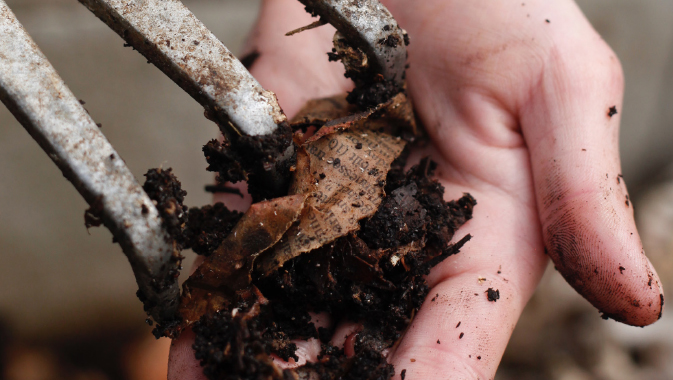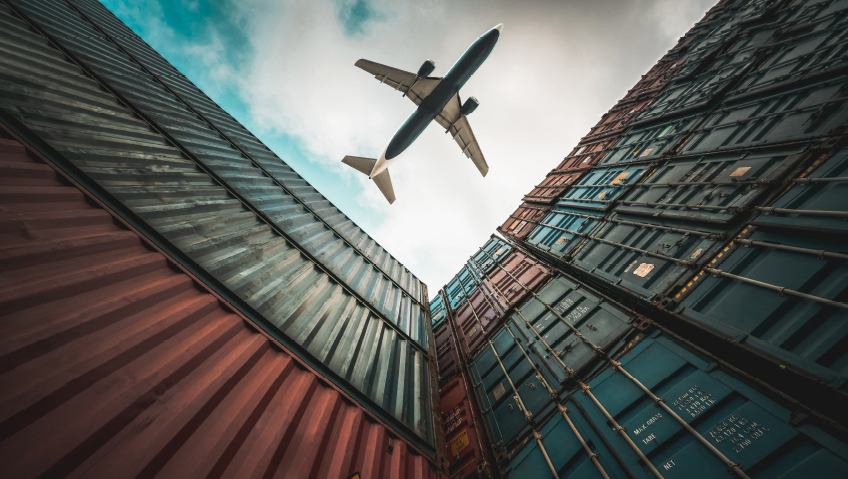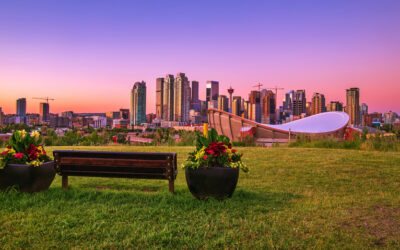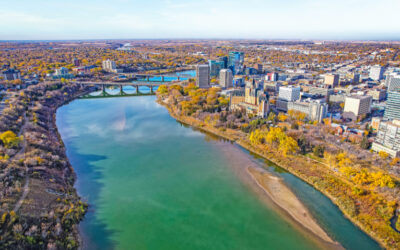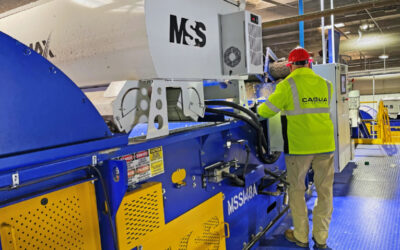Larry Larson peered out the window as he sat sipping a small roast coffee in his favorite smoke-filled café. Beatnik movements were abounding against sexism, racism, homophobia, and big business at the peak of grunge’s heyday that was Seattle in the nineties, and he fit in the scene in his wire-framed glasses and a goatee. Larry had graduated university and was on his way to North Carolina to continue his studies. Even though he was saying goodbye to the Seattle scene, he was carrying the values he learned with him.
~
Shortly after starting graduate school, he landed a job in Raleigh’s first independent café where he learned how to roast coffee. Over time, he was not attending university classes as often, and when he was, his head was filled with images of new coffee blends. It was not long until his university classroom was replaced with the sounds and aromas of the roasting studio. Like so many American visionaries, he took the risk of dropping out of university to start his own business. And that is how Larry’s Coffee began.
Soon, the simple goal of roasting the best coffee in the North Carolina expanded beyond the focus on customer wants and needs. Roasters serve as the intermediaries between consumer and grower. In the late nineties, as globalization expanded, there was a growing awareness of poverty and working conditions in the global south.
Seventy percent of coffee is grown on small family-owned farm businesses, and the families live well below the poverty line. Since Colonial times, giant coffee companies were able to take advantage of this, because most coffee growers were not aware of how much-developed countries paid for their products, and roasters paid little attention to the lives of growers. But folks like Larry were beginning to pay attention, and adamant that they could create change.
In 2000, Larry travelled to the Mut-vitz Cooperative in Chiapas, Mexico. Farmers harvested shade-grown, organic coffee and most importantly, they ran their businesses cooperatively. This meant that profits were shared to better the community. It was a step above the fractured family farm operations that were too divided to stand up to big business. Larry could not look away, and it altered his life. Even today, Larry pays farmers 21 cents more per pound over the international fair trade price minimums.
When he returned to Raleigh, he became a founding member of Cooperative Coffees, a network of North American roasters that only buy directly from fair trade farms like Mut-vitz. Members make annual visits to ensure a personal connection is maintained with the farmers and help farmers arrange pre-financing to help them capitalize on planting and harvesting.
“We’re a holistic-oriented thinking coffee company,” explains Larry. “We make great tasting coffee that is sustainable, meaning it’s organic; it’s fair trade, and it’s low-impact on the planet.” All the beans are completely organic, protecting rivers and forests from pollution caused by chemical pesticides and fertilizers and are certified by Quality Certification Services and USDA Organic.
With his new organic, fair trade practices in place, Larry continued to roast. The blends were inspired by his own passions and humor such as Bean Martin, El Salvador Dali, and Bad Kitty. When it comes to naming, Larry does not just randomly match names with blends. “My approach to coming up with blends is to transport yourself intellectually to the setting, and then imagine drinking this coffee.” One of his top sellers, Cowboy Blend, is a great example.
“Everybody, male or female, resonates to the fantasy they have in their head as to what a cowboy means.” The Cowboy Blend was designed with the image of enjoying it after a meal on a hike, by the fire on the Appalachian Mountains or in the Arizona desert. “This blend of Cowboy was made to have its flavor be brisk, bold, dark, but not too dark. Interesting but not too interesting. You can have a name, but if the flavor of the coffee doesn’t match with the name, it’s not going to work at all.”
A blend called Batch 18 ages in Tennessee Whiskey barrels for eight weeks resulting in what the company calls ‘rich and complex flavors of dark chocolate, concord grape, oak and sour mash whiskey. Full-bodied with a never-ending finish with notes of dark amber maple syrup and toasted malt.’ Larry’s Coffee is sold across America in hotels, restaurants, museums, coffee shops, hospitals, in his café, and online.
Larry’s vision did not stop with unique coffee blends and fair trade, organic policies. If the coffee was eco-friendly, why not completely redesign the roasting facility with environmental sustainability in mind? This took over three years to complete.
To take advantage of natural light, he used a combination of high windows and reflective paint to bounce light around, making the light more efficient. The entire facility is zone-heated, meaning the heat is only turned on in the locations where people are working. Power for the heated flooring in the office is generated from solar panels on the roof.
For years the staff used vegetable oil to power the delivery vehicle, nicknamed the ’Veggie bus,’ which takes care of local deliveries, though it has also been known to make an appearance at music festivals from time to time. “Today we use our new biodiesel delivery van,” Larry says.
A rainwater system collects up to 2,500 gallons of water that are used to run the bathrooms and water gardens. Gardens are also fed by the compost that is produced by waste in the facility. If that was not enough, Larry had local artist Jeff Hurr design and build the company gate using reclaimed metals.
The workers inside and out love the work they do and receive more than just a good feeling and a paycheck for their efforts. Larry makes sure they have great benefits as well. “If you’re full-time, you get paid vacation, paid volunteer efforts, dental, health insurance, and if you’re with us a year, you have access to 401k, and you get a free pound of coffee every week,” he explains.
It is easy to picture such a facility today because green-thinking is becoming normalized. But this process was started almost fifteen years ago when very few people were talking about green building. He designed the facility, working with local contractors and engineers, but it was not easy. There were no existing templates in the U.S. at the time.
In the beginning, builders wanted to do something generic, but Larry was adamant that it had to be as green as possible. “We learned a ton during this renovation project, which was in 2005 to 2007. This was cutting-edge stuff for the United States,” he explains. “Your typical engineer on your building team had no idea how it worked, but they would just have an interest in doing it, so I had to go through a massive learning curve with them to figure out how to do stuff with both the contractor, the general contractor, the sub-contractor, the engineers, and the architect. All of us are going through the learning curve on how to do it.”
While the renovations cost him twenty percent more than the initial generic build estimate, the benefits have multiplied beyond the walls of the building. Larry’s building not only saved energy; it has been an award winner. Larry’s Coffee won a North Carolina sustainability award in 2006 and 2008, a Raleigh environmental award in 2010, Wake County soil and water award and Earthfare vendor of the year in 2014.
Part of the reason why Larry is always a decade ahead of the trends is that he spends a lot of his time researching new technologies. For years, he wanted to innovate the way fair trade worked. He thought it should be more transparent and give consumers accurate information about the exact farm where the beans were produced. “If your company is only based around a stamp, then your company has nothing. You have to be more than a stamp,” he reflects.
Together, with Cooperative Coffees the company started FairTradeProof.org. This website not only displays fair trade compliance and practices but provides an interactive tool for consumers to engage in the movement. Users can select a roaster and track its purchases to an individual farm. It also gives additional details about the farmers, including certifications, Fair trade Labeling Organization number, years in operation, and how the coffee was grown. It serves the dual purpose of personalizing the coffee and empowering the consumer.
Actions like this made Larry’s Coffee an easy candidate for B Corporation Certification. B Corps is an international organization that requires its member companies to meet the highest standard of verified social and environmental performance, transparency, and accountability.
He is certain that Generation Z is on board with these standards. “Technology enables a level of transparency that the consumer is looking for, especially the Z Generation.” They’re looking for planet-friendly and health-friendly products, “and vote with their dollars for companies that are doing good for the planet.”
Keep your eyes on him. With his coffee company expanding, it is most certain Larry is in the process of roasting up something spectacular.

